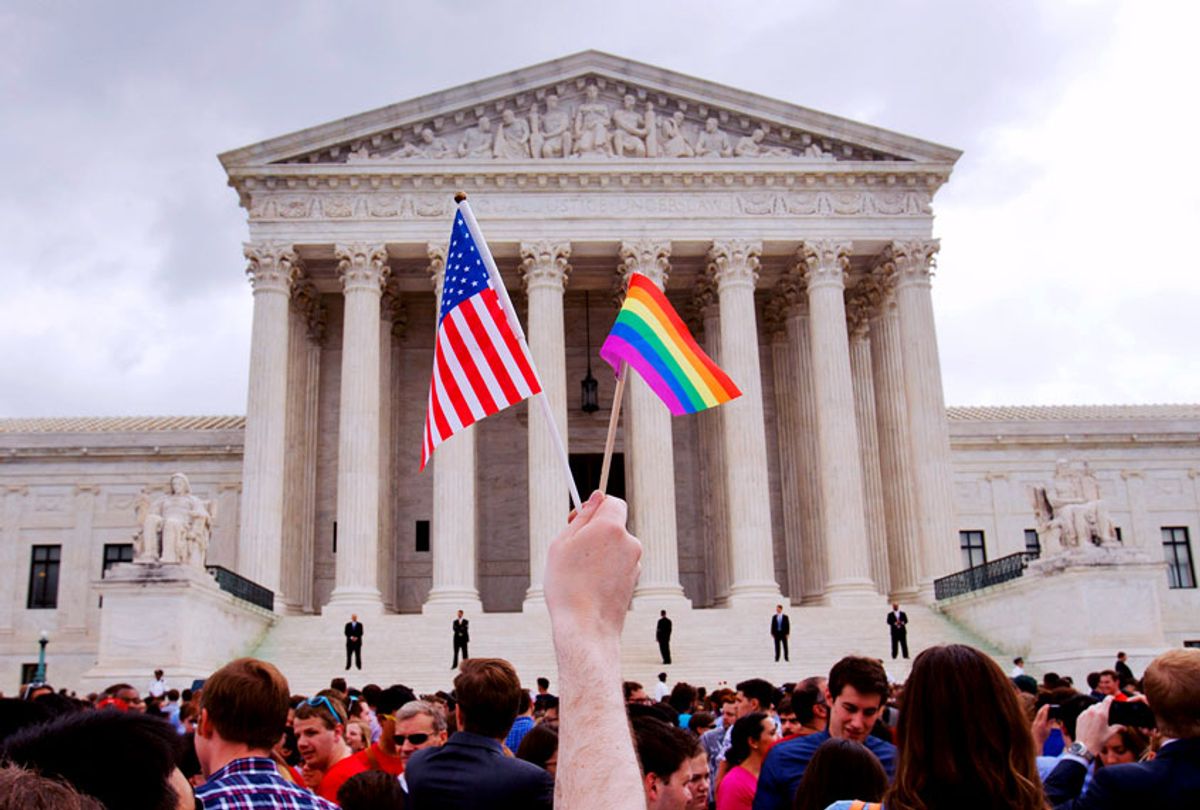The Supreme Court appeared to be deeply divided after hearing two hours of courtroom arguments on whether existing federal law prohibits discrimination in the workplace on the basis of transgender status and sexual orientation.
Justices on the high court must decide whether Title VII of the Civil Rights Act of 1964, which prohibits workplace discrimination on the basis of sex, also forbids discrimination on the bases of transgender status or sexual orientation.
The Supreme Court considered three cases. Two of the cases, Bostock v. Clayton County, Georgia and Altitude Express Inc. v. Zarda, were consolidated because both include claims that employers discriminated on the basis of sexual orientation. The third, R.G & G.R. Harris Funeral Homes v. Equal Employment Opportunity Commission, involves the question of whether existing anti-discrimination laws apply to transgender workers.
The outcome of the case could have widespread implications for the nation's LGBTQ community, which is made up of roughly 1 million workers who identify as transgender and 7.1 million lesbian, gay and bisexual workers.
Twenty-two states, plus the District of Columbia, have their own laws protecting workers from discrimination based on sexual orientation and 21 have them for or gender identity. In seven states, that protection is only applied to public-sector employees.
Those laws would remain in place if the Supreme Court rules that Title VII does not protect LGBTQ workers from discrimination. If the court decides that Title VII covers transgender status and sexual orientation, then those statutes would apply nationwide.
The Trump administration said Title VII does not protect cover sexual orientation, a reversal from the position the Obama administration took.
"The ordinary meaning of 'sex' is biologically male or female; it does not include sexual orientation," the government said in its written brief. "An employer who discriminates against employees in same-sex relationships thus does not violate Title VII as long as it treats men in same-sex relationships the same as women in same-sex relationships."
"Under the Constitution, same-sex couples seek in marriage the same legal treatment as opposite-sex couples, and it would disparage their choices and diminish their personhood to deny them this right," Kennedy wrote.
The court, which currently has a 5-4 conservative majority, is expected to issue its decision in the spring or summer of 2020. The ruling is likely to put the court front and center in the presidential election.



Shares